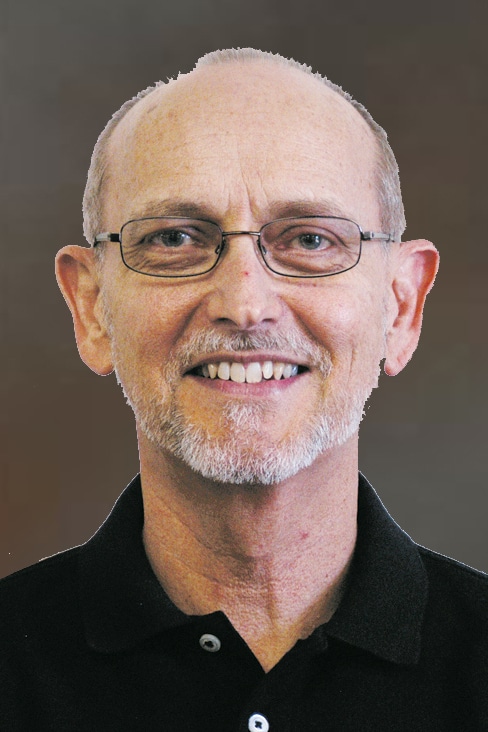Remember when studies of world religions were abstract and theoretical? No more. The world has come to us. And it is messier than we imagined.
 Doyle SagerWhile seminary courses and numerous websites are helpful in providing academic knowledge, my sense is that most of us pastors are learning the art of interfaith dialogue on the fly as we encounter real people and real situations. This is true of our interactions with all religions, but especially true with regard to Islam, thanks to the geopolitics of our time. Certainly, the recent violence in Paris gives us all pause. But in the midst of all the fear and suspicion, aren’t we still called to live our faith compassionately?
Doyle SagerWhile seminary courses and numerous websites are helpful in providing academic knowledge, my sense is that most of us pastors are learning the art of interfaith dialogue on the fly as we encounter real people and real situations. This is true of our interactions with all religions, but especially true with regard to Islam, thanks to the geopolitics of our time. Certainly, the recent violence in Paris gives us all pause. But in the midst of all the fear and suspicion, aren’t we still called to live our faith compassionately?
While stories of religious hatred and bigotry crowd the headlines, I believe that many positive steps toward interfaith dialogue at the local level are under-reported. I continue to hear of brave, kind and bridge-building efforts by followers of Christ who truly want to practice neighbor love. They desire to “do to others what you would have them do to you.” A Baptist church in my state, located in a university town, has 100 people enrolled in English as a Second Language, and 80 percent of them are Muslim.
I take part in a local interfaith alliance, seeking to build trust and friendship among Jews, Muslims, Buddhists and Christians. In 2013, our alliance sponsored a visit to the local Islamic Center. The event took place just after the Boston Marathon bombing. We had a fruitful time of discussion as our Muslim friends expressed their shock and sorrow at that heinous act of terrorism. We also sensed their fear of retribution from people who ignorantly lump all Muslims together. Our community recently hosted its second “ISIS vs. Islam” discussion (the first one was standing room only). It occurred the day after the Paris attacks. The conversation was cordial and helpful.
Two scriptures continually come to mind as I attempt to practice the gospel in our pluralistic world. The first is Acts 17:16-34. I note that the Apostle Paul never felt the need to berate or belittle the non-Christians in Athens. He held firmly to the unique claims of Christ, but he did so with humility and respect for other viewpoints. When you believe you are right, you can afford to be nice.
I can’t help but think some of the hate-filled, strident Christian voices I hear today might actually betray some deep doubt about the sufficiency of the gospel. If we really believe Jesus is the way, why not demonstrate that in a Christ-like way? If there is one clear message in the Book of Acts, it is that Jesus can manage just fine in the crosscurrent of ideologies, religions and movements. He doesn’t need us to protect him from other religions.
The other biblical anchor for me is John 4. In that well-known story, everyone expected Jesus to go around Samaria (not through it). That was the cultural norm — avoid interacting with people who were different. Jesus deliberately chose to go through (not around) Samaria. By doing so, he intentionally put himself in the position of being in the minority. Engaging the Samaritan woman in conversation, he communicated to her that she was valued and worthy of being loved by God. Jesus was curious, gentle and respectful. He was not hateful or arrogant. And something else: He wasn’t afraid of “the other.”
In past decades, evangelicals have spent a great deal of time discussing how to witness to people of other faiths but have given little attention to how we live with them. Our former model for interfaith dialogue seemed to begin with bold witness, hoping that would lead to dialogue and relationships. The flaw in that system is that our boldness often ended the conversation before it began.
I believe the 21st century model calls on us to flip that old approach on its head. Instead of beginning with our brash testimony, why not begin with expressions of mutual respect and then move to hospitality (sharing meals and conversation)? Somewhere in that experience we could also throw in some genuine curiosity: “Tell me about your faith and how it nourishes your life.”
Our bold witness to the living Christ is more likely to be heard after we have shown respect to persons of other faiths, and that will happen when we listen to them and laugh with them — in other words, after we have explored together our common humanity.
Who knows? If we make our bold witness the last step instead of our first one, someone might even say, along with the Athenians in Acts 17, “We will hear you again about this.”
Doyle Sager is senior pastor of First Baptist Church, Jefferson City, Mo.




